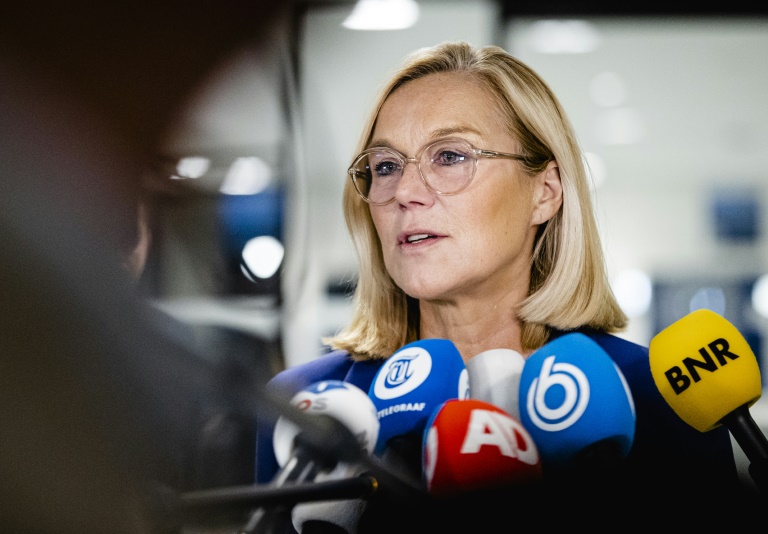Dutch Foreign Minister Sigrid Kaag resigned on Thursday after parliament formally condemned her handling of the Afghanistan evacuation crisis.
Lawmakers approved a motion criticising the government for failing to evacuate some Afghans, and for missing signs of an imminent Taliban takeover.
Kaag’s resignation comes a day after Britain’s Dominic Raab was demoted from his position as foreign minister over the way he dealt with the situation in Afghanistan.
“The House considers that the government has acted irresponsibly,” Kaag said in a statement to parliament after parliament voted by 78 votes to 72 to condemn her.
“And although I stand by our commitment, I can only accept the consequences of this judgement as the minister with ultimate responsibility,” she added.
“In my view on democracy and the culture of our administration, a minister should go if the policy is disapproved of. I will therefore submit my resignation as minister of foreign affairs to his majesty the king.”
Dutch Defence Minister Ank Bijleveld however refused to resign despite also being hit with a so-called censure motion by parliament.
Kaag said she would stay on as leader of the centre-left D66 party, which is in coalition talks with Prime Minister Mark Rutte after winning the second-most seats in elections in March.
Rutte said her resignation was a “great loss” to the cabinet.
The Netherlands evacuated more than 1,500 people, both Dutch nationals and eligible Afghans, in the final chaotic days before the US pulled out of Afghanistan.
But many Afghans were left behind, including 22 interpreters, according to the government, despite calls from MPs to evacuate them months ago.
– ‘Blind spot’ –
Kaag admitted during the debate that the government “had a whole blind spot in how quickly it would get that bad” in Afghanistan, but said other countries had been in a similar position.
Dutch lawmakers from across the political spectrum lined up to criticise the government during a parliamentary debate on Afghanistan on Tuesday.
“How is it possible that there are still dozens of defence interpreters in Kabul?” said Jeroen van Wijngaarden, an MP from Prime Minister Rutte’s VVD party.
Ministers were accused of being “apathetic” and mired in “slowness and vagueness” during the evacuation crisis.
The sense of chaos was fuelled by reports in local media that the Dutch ambassador had been begging the government since March 2020 to make preparations, but that ministers only decided two days before the fall of Kabul.
The debacle has stirred bitter memories in the Netherlands of another foreign policy failure, when Dutch peacekeepers failed to prevent the 1995 Srebrenica massacre during the Bosnian War.
Dutch broadcaster NOS said it would have been “very difficult” for Kaag to stay on, given that after elections she had made strong calls for political change.
Kaag had herself called on Rutte to resign in April after he too was condemned by parliament over claims he lied about coalition talks, but the premier clung on.
The Afghan row now threatens to further complicate coalition talks that have dragged on since the elections, with a caretaker government still in place six months on.











